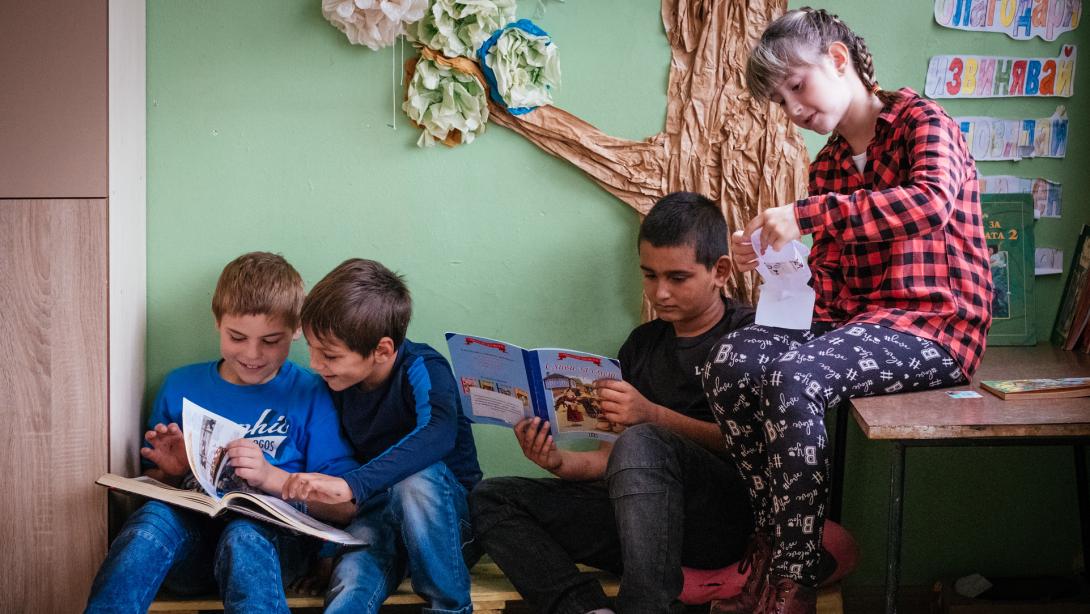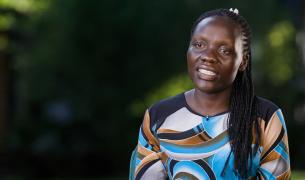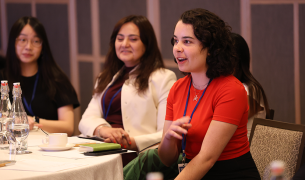Reorienting learning and teaching to develop the next generation of European citizens

The new Council of the European Union Recommendation on Pathways to School Success presents a unique opportunity to reorient the way we are learning and teaching to develop students as leaders of a better Europe and a better world
The Council of the European Union has recently adopted a recommendation called Pathways to School Success. The recommendation seeks to improve student achievement and well-being, offering a bold call for better educational outcomes for all learners, irrespective of their personal characteristics, family, socio-economic, and cultural background, in particular by reducing low-achievement in basic skills and by increasing secondary education attainment. It sets a policy framework for two EU-level 2030 targets: to bring the share of low-achieving 15-year-olds in reading, mathematics, and science to less than 15% and the share of early leavers from education and training to less than 9%.
We welcome the Council’s big ambitions and believe that, despite steep challenges, these goals can be reached if we take the right steps. Current underachievement rates in reading, mathematics, and science stand at about 22%, and almost 1 in 10 young people in the EU drop out of education and training prematurely.
We share a vision of a European Union united in common purpose: to enable all children to fulfil their potential, regardless of the circumstances they face. The root causes of the inequalities that lead to such different outcomes for children from different backgrounds are complex, but they’re also similar across European contexts. To get from here to where we want to be, we must match good policy with effective practice, strategies, and implementation. We must invest in approaches that drive long term systemic change.
One example of such an approach is the Teach For All network. For 15 years, Teach For All network partners have served in marginalized schools and communities, with currently 60 partners around the globe, of which 16 partners are in the European Union. Each works towards a shared vision of developing the collective leadership needed for all children to achieve their potential. Partner organisations recruit outstanding graduates and professionals from a range of disciplines to commit two years to teach in high-need schools and communities, and foster the development of alumni as leaders for educational change. Our approach has led to student and school improved outcomes, and can help the EU reach its learning outcomes targets.
What’s behind this approach? With years of learning in our programs across Europe, we’ve seen that the most successful classrooms are those where the purpose of education is explored collectively with teachers, students, families, and community members. We believe that our shared big purpose in education should be to develop students as leaders of a better future—that education is about much more than the skills and knowledge we develop in our citizens, but also in how we equip them to take on the challenges we face in Europe and around the world over the coming decade. We’ve seen how four particular directions, which are aligned with the Council’s recommendation, lead to positive systemic change:
1. Broadening student outcomes: When the purpose of education is broadened to cultivate holistic student development, students learn skills to enhance their agency, awareness, connectedness, and well-being. Success means developing young people who can navigate the complexities of life: internally and externally, practically and emotionally, to become leaders of their lives and in their communities.
2. Investing in teachers as learners alongside students: Educators need the knowledge, skills, and competences that enable children to grow as leaders. The support our network partners provide to their teachers has led to positive classroom and school outcomes, and are aligned with Pathways to School Success recommendations. For example, we embed Diversity, Equity, and Inclusion within our training programmes, we focus on teacher well-being, and we provide research-based professional development to teachers. We strongly believe this can help adjust teaching and learning to the specific needs of all learners.
3. Sharing and learning across borders: At Teach For All, we've seen the power of educators learning from each other across borders, to expose them to what’s possible and what’s working in other places. The Erasmus+ exchange program has demonstrated the positive results of supporting more than 3.3 million students to learn from each other through cultural, social, and academic exchange. Teachers and educational leaders across Europe will benefit equally from this kind of opportunity to learn from each other and need programmes that facilitate such opportunities.
4. Taking a whole-school approach: This approach supports schools to work as a community to design solutions for the challenges they face. Stakeholders work collectively to identify a problem, align around the solution, and advocate for everybody to accomplish their part. This approach leads learning communities to define shared visions of school and student success, together with their communities and other education stakeholders.
To put these four directions into practice, a consortium of different members involving Teach For All partner organisations, public authorities, and other education stakeholders has started the Novice Educator Support and Training (NEST) project. NEST supports novice teachers and their mentors to develop key skills, knowledge, and mindsets, particularly in underserved schools in disadvantaged contexts. These skills allow them to lead students more holistically, work in community, and share experiences and good practices. It’s being successfully implemented in Austria, Belgium, Romania, Spain, and Bulgaria
NEST provides novice teachers with research-based professional development from experienced mentors. The mentor practices are rooted in data shown to increase teaching skills and job satisfaction, raise teacher retention, improve student performance, and create a peer learning culture where schools and teachers contribute to innovative, empowering contextualized educational policies. Already NEST has strengthened the sense of purpose among its participants, helping teachers become the leaders and learners every disadvantaged school needs.
Teach For All has shown expertise in tackling inequalities in European education. Two earlier Erasmus+ funded projects—A New Way for New Talents in Teaching and From Inclusive Education to Real Scale Transfer—have already successfully proven our approach works. Their innovative outcomes led to national policy reforms of education systems in member countries. Similarly, we expect that the completion of the NEST programme in February 2024 will provide a pathway for Member States to implement their own mentoring programmes leading to the four actions mentioned above.
Programs like NEST are the kinds of projects needed to reach the goals set by the Pathways to School Success recommendations. To prepare our children for the future, we need to be bold in our actions to meet bold ambitions. We cannot stick to the same old practices. We must choose and implement approaches that lead to systemic change. We cannot afford to miss the opportunity to allow all children to reach their potential.



